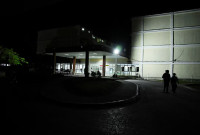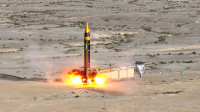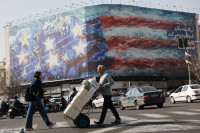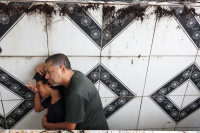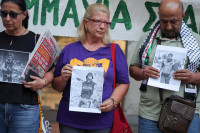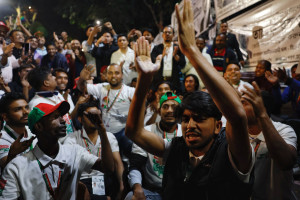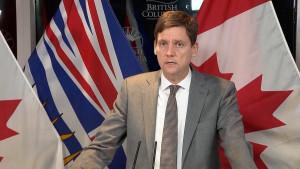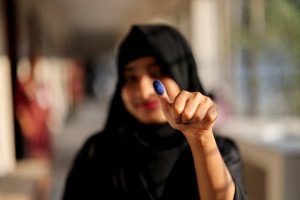World
Israel warns Lebanese against returning to area at border
Lebanon's US-backed military on Saturday accused Israel of procrastinating in its withdrawal.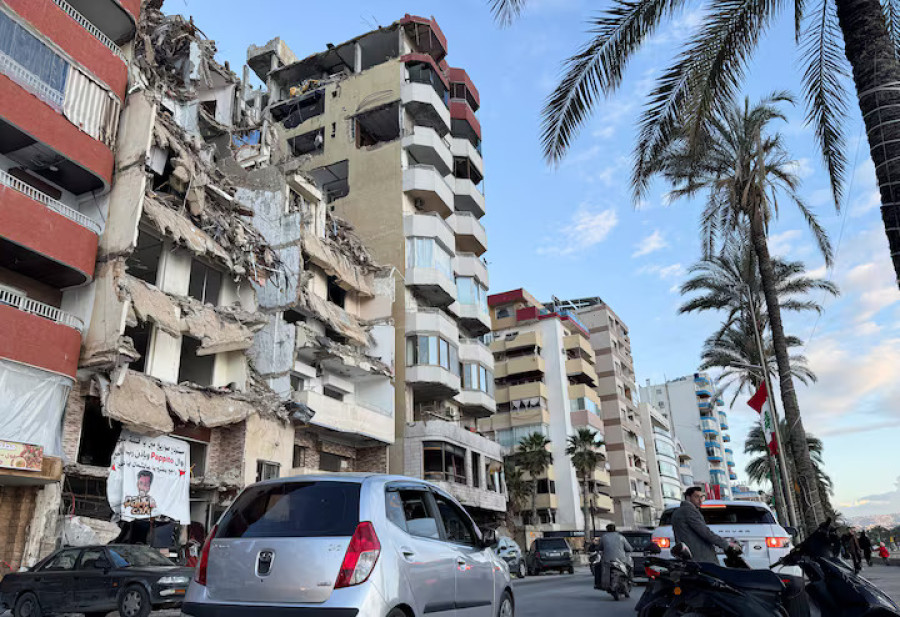
Reuters
The Israeli army on Saturday warned residents of dozens of Lebanese villages near the border against returning until further notice, a day after Israel said its forces would remain in south Lebanon beyond a Sunday deadline for their departure.
A US-brokered ceasefire that ended last year's war between Hezbollah and Israel stipulated that Israeli forces should withdraw as the Iran-backed group's weapons and fighters are removed from the south and the Lebanese army deploys. The deal set a 60-day period which ends on Sunday.
But Israel said on Friday the terms had not been fully enforced by the Lebanese state, meaning Israeli troops would stay beyond Sunday, without saying for how long.
Lebanon's US-backed military on Saturday accused Israel of procrastinating in its withdrawal.
In a statement on social media platform X, the Israeli military posted a map showing an area of the south containing dozens of villages and reminding residents that until further notice they are forbidden from returning to their homes.
"Anyone who moves south of this line puts themselves in danger," the statement said. The line stretches from Shebaa, less than 2 km (1.5 miles) from the border in the east, to Mansouri in the west - about 10 km (6 miles) from the border.
The ceasefire ended more than a year of hostilities which were triggered by the Gaza war and peaked in a major Israeli offensive against Hezbollah, which uprooted more than a million people in Lebanon and left the group badly weakened.
The Israeli military says it has been seizing Hezbollah weapons and dismantling its infrastructure in the south.
The White House said on Friday that a short, temporary ceasefire extension was urgently needed.
Hezbollah, which suffered major blows in the war, said on Thursday that any delay of Israel's withdrawal would be an unacceptable breach of the deal and put the onus on the Lebanese state to act. Hezbollah said the Lebanese state would have to deal with such a violation “through all means and methods guaranteed by international charters.”
Israel said its campaign against Hezbollah aimed to secure the return home of tens of thousands of people forced by Hezbollah rocket fire to leave their homes in northern Israel.
The Lebanese army, in a statement issued on Saturday, urged Lebanese residents to wait before heading into the border region, citing the presence of mines and unexploded Israeli ordnance.
The army said it had continued to implement the plan to strengthen its deployment south of the Litani River since the ceasefire came into effect.
“Delays occurred in a number of the phases as a result of procrastination in the withdrawal by the Israeli enemy, which complicated the mission of the army’s deployment,” the statement said. The army “maintains its readiness to complete its deployment as soon as the Israeli enemy withdraws.”
HED: South Korea’s ‘imperial presidency’: how it became threat to democracy
DEK: Momentum building for reform of 1987 Constitution, with sharp focus on curbing presidential power
Suspended President Yoon Suk Yeol, who was formally arrested last week for declaring martial law and faces insurrection charges, once positioned himself as a reformer determined to dismantle South Korea’s entrenched “imperial presidency.”
In March 2022, around 50 days before his inauguration, Yoon pledged to “return Cheong Wa Dae, a symbol of imperial power, to the people” and formalized a controversial plan to relocate the presidential office to Yongsan’s Defense Ministry compound.
However, Yoon’s presidency has become emblematic of the very system he pledged to dismantle, underscored by his December 3 declaration of martial law from his Yongsan office.
Yoon’s remarks Tuesday during his self-defence at the Constitutional Court provide yet another example of his understanding of presidential power.
“In the Republic of Korea, the National Assembly and the media hold unassailable supreme dominance in the hierarchy, far outstripping the president in authority,” Yoon said during his 6 1/2-minute direct argument, referring to South Korea by its official name.
Yoon has placed himself at the centre of the debate over the power of the South Korean presidency.
Yoon's Dec. 3, 2024, declaration of martial law has been interpreted as a reflection of the "imperial presidency" — a lingering remnant of the Yushin Constitution era under Park Chung-hee. The 1972 Yushin Constitution enabled Park to consolidate authority, dismantle checks and balances and institutionalize one-man rule — an authoritarian legacy that persisted until democratization and the 1987 constitutional reform.
The 1987 Constitution, the last amendment to date, restored democratic principles of the pre-Yushin era but left expansive presidential powers largely intact.
Respected veteran leaders — including former key aides who once propelled Yoon’s rise to power — and experts have declared with one voice that constitutional reform to curtail presidential powers entrenched in the imperial presidency is no longer optional: It must happen now.
“The critical question we must address is how to decentralize the concentration of power embodied in the imperial presidency. We need to actively pursue efforts to scale back and redistribute presidential authority in a meaningful way,” said veteran politician Kim Chong-in, who served as interim leader of the ruling People Power Party and as Yoon’s presidential campaign chief, at a forum hosted by the Near Foundation think tank this month.
Three South Korean presidents have been impeached, underscoring the weakened stability of the presidency, which ensures a fixed single five-year term, unlike the flexibility of parliamentary systems.
Nearly every South Korean president has faced imprisonment — Chun Doo-hwan, Roh Tae-woo, Lee Myung-bak and Park Geun-hye — or legal investigations after leaving office, with power abuse, corruption and scandals defining the presidency for decades. Even Kim Young-sam and Kim Dae-jung, though spared direct investigations, saw their legacies tarnished by scandals involving their children. Roh Moo-hyun, confronted with investigations of family corruption, took his own life.
"The current crisis of democracy in South Korea stems from the actions of its actors, but the solution to this problem can only be achieved through institutional reform,” said Lee Kark-bum, former chair of the presidential inaugural address preparation committee for Yoon.
“The direction that constitutional amendment should aim for in terms of power structure is the fundamental reform of the current presidential system,” said Lee, who also serves as an honorary professor of business and technology management at the Korea Advanced Institute of Science and Technology .
Chang Young-soo, a professor at the Korea University School of Law, echoed, “Had presidential powers been more limited and subject to rational oversight, such incidents might have been prevented.”
Unchallenged for decades
Despite decades of the abuse of presidential power, South Korea has yet to confront the challenge of implementing meaningful institutional reform.
The 1987 Constitution, born from the June Democratic Struggle that year, introduced direct presidential elections and a five-year single term to curb power concentration, while establishing the Constitutional Court to enforce checks and balances.
Yet, the legacy of the Yushin Constitution that institutionalized the imperial presidency persists, leaving today’s office with outsized authority and highlighting the pressing need for comprehensive reform.
Kim Chong-in stated that the issue of redistributing the vastly expanded presidential powers under the Yushin Constitution was largely overlooked in the 1987 amendment.
“While minor adjustments were made, such as establishing the Constitutional Court and revising certain provisions, the fundamental power structure of the Yushin Constitution remains effectively intact,” Kim said.
Kang Won-taek, a professor in the department of political science and international relations at Seoul National University, underscored, “(The 1987 Constitution) is not a forward-looking document but one that considered a return to the pre-Yushin era as democratization.
“Fundamentally, the provisions related to the presidency were not changed.”
The president of South Korea wields extensive power not only within the executive branch, but also over the legislative and judicial branches.
In the legislative branch, the president’s influence is primarily exercised through control over the ruling party.
In the judiciary, the president holds significant authority over top leadership appointments. This includes appointing the chief justice of the Supreme Court with Assembly consent, as well as the other 13 Supreme Court justices based on the chief justice’s recommendation, without requiring legislative approval.
The Constitutional Court, comprising nine justices, is also shaped by presidential appointments, with three justices directly appointed by the president, three recommended by the Assembly and three by the chief justice. The president also selects the Constitutional Court president, subject to Assembly consent.
Additionally, the president directly appoints the prosecutor general, who oversees critical investigations, further extending influence over the judiciary.
“The painful reality we all experienced this time is that a single poorly chosen leader can plunge the entire country into crisis,” professor Kang said. “Therefore, the direction of reform must focus on redistributing the concentrated power held by one individual.”
Authority over judicial appointments
A widely discussed approach is to eliminate the president's authority over judicial and Constitutional Court appointments.
“My proposal suggests that the appointment of Supreme Court justices, the chief justice, Constitutional Court justices and the president of the Constitutional Court should require the approval of at least two-thirds of the National Assembly,” Kim Chong-in said. “This, it is argued, would ensure that only the most qualified candidates are selected for these positions.”
A group of legal and political scholars, under the Kang Won Yong Foundation’s Korea Dialogue Academy, also unveiled a proposed "New Constitution" on Monday aimed at decentralizing presidential power.
The draft retains the five-year single-term presidency but limits the president’s authority over appointments by requiring a two-thirds majority in the National Assembly to approve all Constitutional Court judges nominated by an independent committee.
Some argue for limiting presidential immunity granted under Article 84 of South Korea’s Constitution, which protects the president from prosecution except in cases of insurrection or treason.
Chang Young-kuen, a professor at Hongik University College of Law, underscored that “the current structure of South Korea's Constitution is highly fragmented and flawed, with the most critical issue being the lack of accountability for those in power.”
“While it generously grants authority and rewards, the mechanisms for imposing penalties are disproportionately weak. To address this, the law must ensure that penalties are as robust as the rewards, reinforcing accountability,” Chang said. “In Korea, the immunity from prosecution granted to presidents has become a significant point of contention in recent debates.”
A push for a four-year presidential term with the possibility of reelection does not appear to be gaining traction.
Chang Young-soo pointed out “dismissing the issue as merely a flaw of the five-year single-term presidency and assuming it can be resolved by adopting a four-year term with reelection reflects misplaced optimism.”
“There are significant concerns that, in the reality of an imperial presidency, a four-year reelection system could function similarly to an eight-year single term, with the potential for even greater concentration of power in the presidency,” he said.
Focused, phased approach
Experts stress that South Korea’s first successful constitutional amendment since 1987 would require uniting around a single, focused objective.
“I don’t believe this issue has ever been felt as acutely or seriously as it is now, having risen to the level of a national concern,” Kang said. “This is why I believe the chances of success are higher than ever — and why I am convinced it must be accomplished.”
Kang cautioned that attempting to address all issues at once would be like opening “Pandora's box,” sparking endless debates and draining momentum needed for constitutional reform.
"That is why I believe it is crucial to focus on a single core issue: redistributing power that has become overly concentrated in one individual. In my view, channeling efforts toward this singular objective is the key to achieving meaningful reform," Kang said.
Chang Young-soo advocated for a focused, phased approach to constitutional amendment, stressing the importance of prioritizing consensus-rooted reforms.
“There are too many issues that have accumulated over the past 38 years to address all at once. Attempting to do so risks yet another failure," he said. "Instead, we should start with issues capable of gaining broad public and bipartisan support. More complex matters requiring further deliberation can follow in subsequent waves of reform. This phased approach significantly enhances the likelihood of successfully amending the Constitution.”
Reform as campaign pledge
Some emphasize the importance of the next group of presidential candidates making firm commitments to pursue constitutional reform, given the tight timeline that makes it unlikely to be achieved before a potential presidential election. If the Constitutional Court upholds Yoon's impeachment, an election must be held within 60 days.
“The question of whether constitutional reform will happen ultimately depends on whether the next presidential candidate approaches the matter with genuine integrity and a vision for the country’s future,” Kim said “If an early election takes place this year, the most critical factor for constitutional reform will be whether a candidate emerges who makes a clear commitment to pursuing it during the campaign.”
Lee Sang-soo, a former labour minister and now a representative for the Coalition for Constitutional Amendment Promotion, said, “It is unrealistic to expect constitutional reform to be pursued sequentially after a president takes office.”
“Once elected, a president’s priorities and perspectives often shift. Therefore, constitutional reform must be tied directly to the next presidential election, with candidates presenting their proposals to the public for judgment,” Lee said.
The consensus is that without constitutional reform, South Korea’s presidency may cease to function effectively.
“The presidential system is meant to ensure stable and accountable governance by providing a fixed term, with the president fully responsible for their tenure,” Kang said.
In less than 40 years of democratization, South Korea has impeached three presidents, having removed one with another still to be decided —a stark contrast from the United States, where no president has been so removed from office, despite four formal impeachments involving three presidents in nearly 240 years.
“I don’t believe this will be the end of it,” Kang said.
“If we don’t make significant changes now, our society could face a severe political crisis. The Korean political system no longer operates as it once did.”
(In association with Asia News Network)
South Korea’s impeached President Yoon Suk Yeol arrives for his impeachment trial at the Constitutional Court in Seoul, South Korea, January 21, 2025.
HED: Israel warns Lebanese against returning to area at border
DEK: Lebanon's US-backed military on Saturday accused Israel of procrastinating in its withdrawal.
Cars drive past a damaged building near the Corniche, after the Israeli prime minister’s office said on Friday that Israeli forces will remain in southern Lebanon beyond a 60-day deadline stipulated in a ceasefire deal with Hezbollah because its terms have not been fully implemented, in Tyre, Lebanon January 24, 2025.
Reuters
BEIRUT/JERUSALEM, Jan 25
The Israeli army on Saturday warned residents of dozens of Lebanese villages near the border against returning until further notice, a day after Israel said its forces would remain in south Lebanon beyond a Sunday deadline for their departure.
A US-brokered ceasefire that ended last year's war between Hezbollah and Israel stipulated that Israeli forces should withdraw as the Iran-backed group’s weapons and fighters are removed from the south and the Lebanese army deploys. The deal set a 60-day period which ends on Sunday.
But Israel said on Friday the terms had not been fully enforced by the Lebanese state, meaning Israeli troops would stay beyond Sunday, without saying for how long.
Lebanon’s US-backed military on Saturday accused Israel of procrastinating in its withdrawal.
In a statement on social media platform X, the Israeli military posted a map showing an area of the south containing dozens of villages and reminding residents that until further notice they are forbidden from returning to their homes.
“Anyone who moves south of this line puts themselves in danger,” the statement said. The line stretches from Shebaa, less than 2 km (1.5 miles) from the border in the east, to Mansouri in the west - about 10 km (6 miles) from the border.
The ceasefire ended more than a year of hostilities which were triggered by the Gaza war and peaked in a major Israeli offensive against Hezbollah, which uprooted more than a million people in Lebanon and left the group badly weakened.
The Israeli military says it has been seizing Hezbollah weapons and dismantling its infrastructure in the south.
The White House said on Friday that a short, temporary ceasefire extension was urgently needed.
Hezbollah, which suffered major blows in the war, said on Thursday that any delay of Israel's withdrawal would be an unacceptable breach of the deal and put the onus on the Lebanese state to act. Hezbollah said the Lebanese state would have to deal with such a violation “through all means and methods guaranteed by international charters.”
Israel said its campaign against Hezbollah aimed to secure the return home of tens of thousands of people forced by Hezbollah rocket fire to leave their homes in northern Israel.
The Lebanese army, in a statement issued on Saturday, urged Lebanese residents to wait before heading into the border region, citing the presence of mines and unexploded Israeli ordnance.
The army said it had continued to implement the plan to strengthen its deployment south of the Litani River since the ceasefire came into effect.
“Delays occurred in a number of the phases as a result of procrastination in the withdrawal by the Israeli enemy, which complicated the mission of the army’s deployment,” the statement said. The army “maintains its readiness to complete its deployment as soon as the Israeli enemy withdraws.”




 16.46°C Kathmandu
16.46°C Kathmandu